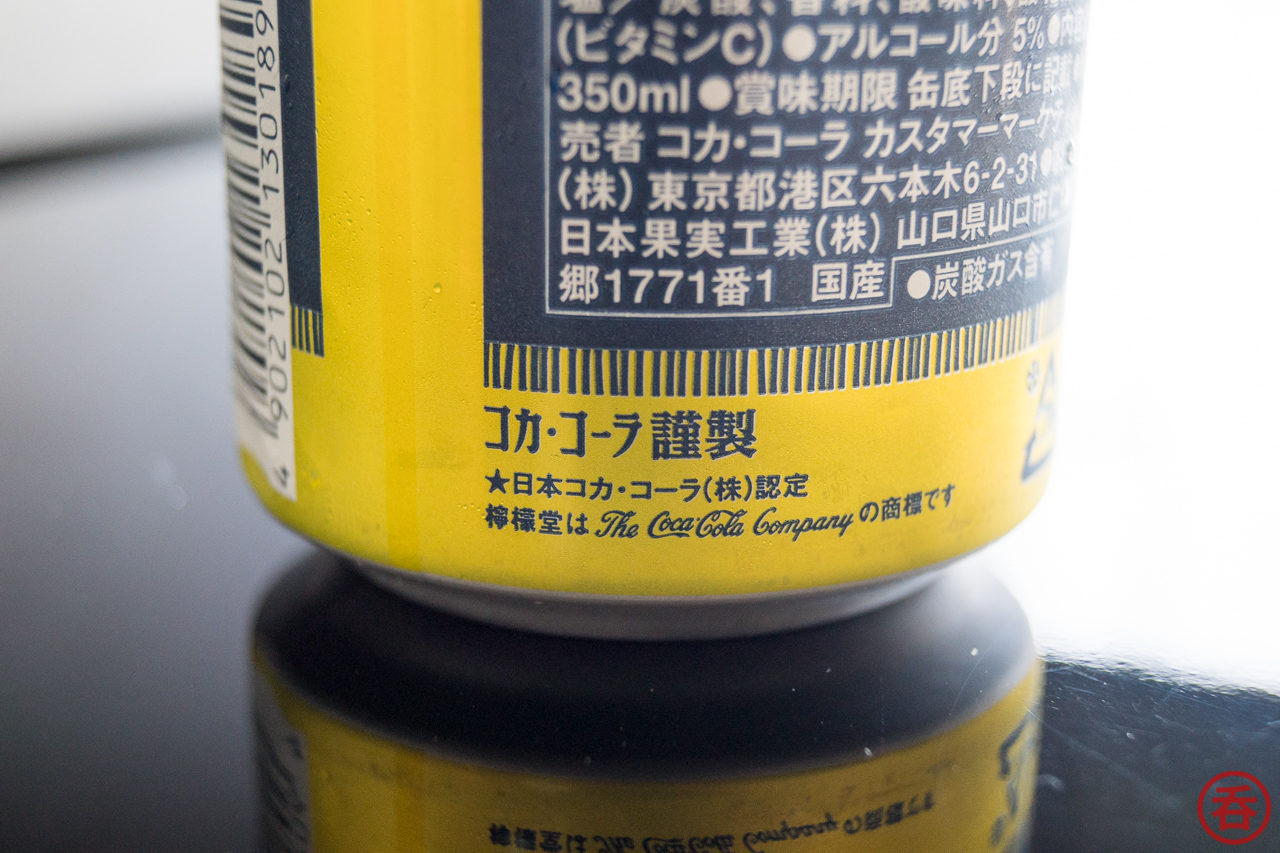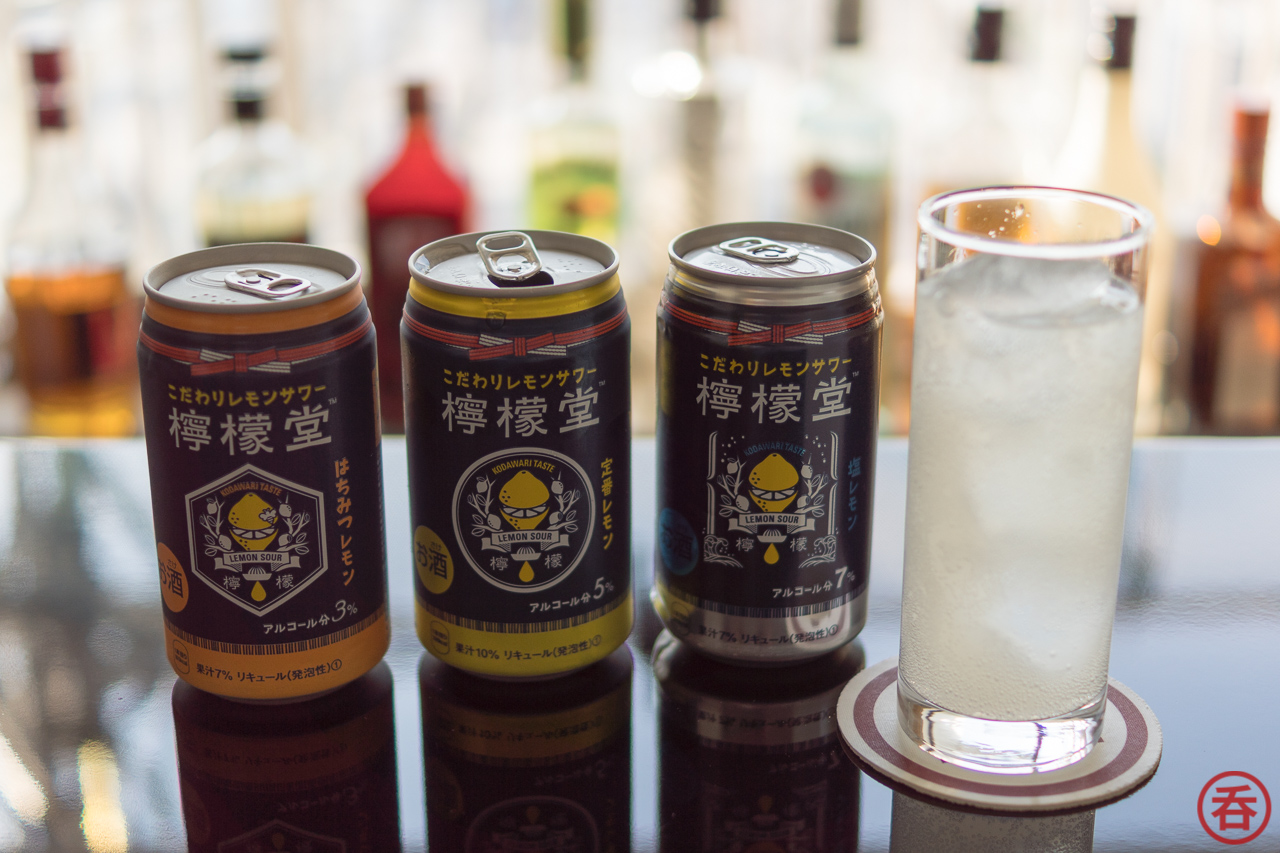Earlier this year Coca-Cola made waves when they revealed their intention to enter the alcoholic beverage market for the first time in the company’s 132-year history. And they are doing so right here in Japan. The three “Lemon-Do” chuhais are now available–only in Japan’s southern island of Kyushu at the moment–and I’ve managed to snag a set. So today we’re drinking the Coca-Cola “Lemon-Do” chuhai series!
What is Chuhai?
“Chuhai” is just a quicker way to say “shochu highball,” a standard izakaya drink in Japan. Shochu is Japan’s national distilled beverage, a spirit typically made from rice or potato. Add a bit of fresh fruit juice — lemon is most popular — then top it off with soda water. Major players like Kirin and Suntory have been making canned versions of this drink for many years already. But it’s worth noting that they generally use vodka/neutral spirits rather than actual shochu, as the former is more neutral. Coca-Cola is doing the same here.
As for why Coca-Cola Japan is making canned chuhai, that’s simple: money! Japan’s “Ready To Drink” (RTD) market is growing at an estimated 20% per year. At the same time, they’re being very cautious. This is a geographically limited release, as it’s not available nationwide in Japan, let alone internationally. There’s also no reliance on the Coca-Cola brand: the drink contains no Coke! Besides a small blurb on the can, there’s nothing linking these chuhais back to Coca-Cola.
Lemon-Do Standard Lemon Review
Lemon-Do Standard Lemon is 5% abv, and it’s for those who are after the closest thing to a regular izakaya chuhai. All three of the Lemon-Do chuhais are made with a “maewari lemon” technique, meaning the spirits and lemon are left to steep for a few days. This really gets that lemon taste to stick!
And it’s certainly working here. The Standard Lemon is very close to an authentic izakaya-made chuhai. In fact, lemon is listed as the primary ingredient! Other all canned lemon chuhais I’ve had have a more artificial chemical lemon flavor.
There’s very little alcohol bite, despite being 5% abv. If this is what you’re looking for, you won’t find it. You don’t really feel like you’re drinking when you drink this. That can be quite dangerous!
The carbonation of the soda water is quite strong as well. If you’re used to strong soda water, such as what you get from soda fountains, this is an excellent choice.
Lemon-Do Honey Lemon Review
At 3% abv, this is the weakest chuhai in the series. Honey comes on quite strongly, but this does balance nicely with the lemon flavor. This is closer to a slightly alcoholic soda pop more than anything — something Coca-Cola definitely has expertise making.
Speaking of which, it’s worth pointing out that none of the Lemon-Do series of drinks are actually manufactured by Coca-Cola, or any of the Coca-Cola bottling companies. Instead, it appears they’re being made by Yamaguchi Prefecture-based Nihon Kajitsu Kougyou. Like I said, Coke is proceeding cautiously with this experiment.
I personally prefer more of an alcohol bite when drinking chuhais. Let’s move on to the strongest!
Lemon-Do Salty Lemon Review
Here we are at 7% abv, putting this in the “strong” category, which has shown the most upside even within Japan’s growing RTD market. There’s added salt here, but personally I think they went a bit overboard. The salt unfortunately pushed that lemon flavor back too much, resulting in a sort of phony citrus extract flavor. Despite normally preferring a stronger chuhai, this one ended up being my least favorite of the three.
Closing Thoughts
While the Standard Lemon was perhaps the most authentic canned chuhai I’ve ever had, at the end of the day, it’s still a canned chuhai. Certainly nothing game-changing going on here.
That said, I’m left with plenty of unanswered questions. Is Coca-Cola trying to lure customers away from whatever they’re currently drinking? How would they deem this experiment a success, or a failure? If it’s a success, will the next product actually use Coke? Hopefully we’ll have answers to these questions soon.

Hi there! I created and run nomunication.jp. I’ve lived in Tokyo since 2008, and I am a certified Shochu Kikisake-shi/Shochu Sommelier (焼酎唎酒師), Cocktail Professor (カクテル検定1級), and I hold Whisky Kentei Levels 3 and JW (ウイスキー検定3級・JW級). I also sit on the Executive Committees for the Tokyo Whisky & Spirits Competition and Japanese Whisky Day. Click here for more details about me and this site. Kampai!


I am looking forward to this during my visit to Fukuoka later this month!